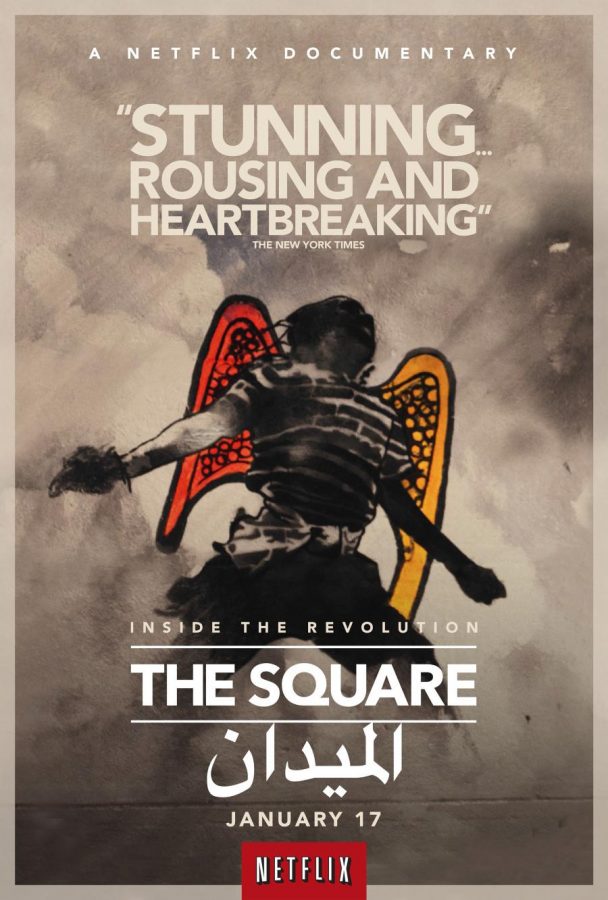Jehane Noujaim’s Oscar-nominated documentary “The Square” is an intense and beautiful film that captures, from the perspective of several activists, the early days of the Egyptian Revolution and tumultuous state of the country after former leader Hosni Mubarak was ousted in 2011. The film spans two and a half years in the lives of these revolutionaries, and follows the oppressive conditions that sparked protests through strong opposition from the military and the exhausting fight for democracy as their lives are all connected to Tahrir Square in the center of Cairo.
Ahmed Hassan, one of the activists featured in the film, represents the young secular Egyptians, and his unwavering optimism, passion and courage in the face of strong opposition are what makes his such a compelling story. On the religious side there is Magdy Ashour, a sincere and loyal father of four and member of the Muslim Brotherhood. As a majority of the population united and marched to the square to let their government know that they had had enough of Mubarak, Hassan and Ashour became unlikely friends, living next to each other for eighteen days until Mubarak resigned. The resulting stories offer a personal connection, putting a face to the violent protests and injustices of the Egyptian people instead of just hearing about them on the news.
While the film offered compelling personal narratives from citizens directly involved in the conflict, filmmaker Noujaim is clearly opinionated, calling the Muslim Brotherhood a “fascist organization” in an interview with NPR, which ended up making the film relatively one-sided. In the film, Brotherhood doesn’t arrive to protest against Mubarak until six months after Mubaraks’s fall, with Hassan saying that they were only there because they were being bribed with cooking oil and bread and didn’t actually believe in the cause. In reality, the Brotherhood met with the military government within the first two weeks to discuss forming a transitional government. This was described in the film as “cutting secret deals with the military”. When the military cleared the square the second time citizens protested, Hassan described it as a betrayal by the Muslim Brotherhood, saying, “When the Brotherhood got what they wanted from the military, they left us alone in the square to get beaten up, arrested, to die alone”. There are a lot of arguments from the secular side of the protests, though the film makers never show the Brotherhood’s response to a comment.
When watching, one gets a feeling of overwhelming relevance, that this film is very important and that you are literally witnessing history. This is one of very few documentaries today that will never really follow the story from beginning to end as it is still unfolding. The film left off after the democratic elections in late 2012, when many Egyptians were disappointed in the newly elected Mohammed Morsi. Since then, the situation has escalated. Morsi was overthrown by the military only after a year in office and now faces charges of inciting murder and violence. The military coup shows the cyclical nature of the Egyptian government. The same thing happened with former president Hosni Mubarak-he was so unpopular with the masses that they forced him out of office, giving the military full reign.
This film effectively conveys the frustration felt by so many fighting for a non-oppressive state and how Egypt will never be able to attain the democracy it so desperately wants and needs if it continues in this cycle.
“The Square” is a wonderful testament to perseverance and strength that also documents part of an important event in world history, though is missing a side of the story, along with a counterargument.


